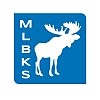(I’m back! I have been fighting a nasty virus all summer. I have been just trying to keep up with my daily workload, with no time or energy for writing. Feeling much better now!)
In the past 3 months I have been retained by 3 solo lawyers who unable to complete their LSUC audits. In one case, the lawyer was the subject of a LSUC initiated Disciplinary Complaint for poor bookkeeping.
In each case, the lawyer was using Word tables or Excel sheets to create client ledgers. In most cases, the client ledgers were detailed in the handling of the individual client’s funds, but there was no method being employed to track the overall picture. There was also no method being used to create the journals required for proper record keeping.
Minimum Requirements (LSUC)
- Trust receipts / disbursements (trust bank journal)
- Client ledgers
- Trust transfers record
- Receipts / disbursement not trust (general bank journal)
- Record by date of fees / disbursements charged to clients (billing fees journal)
- Monthly trust bank reconciliations and trust listings
The reason accounting programs were invented was to make record keeping easier. If you do not have a trust account, buy yourself a program like Quickbooks or Simply Accounting. If you have a trust account, PCLaw is the most comprehensive legal accounting program available. Purchase a program and make your life a whole lot easier. And the next time an auditor comes to visit you can be confident in the status of your records.
As always, I invite your comments and suggestions for future post topics. Next Week – PCLaw and Fraud Prevention.
Clyde
